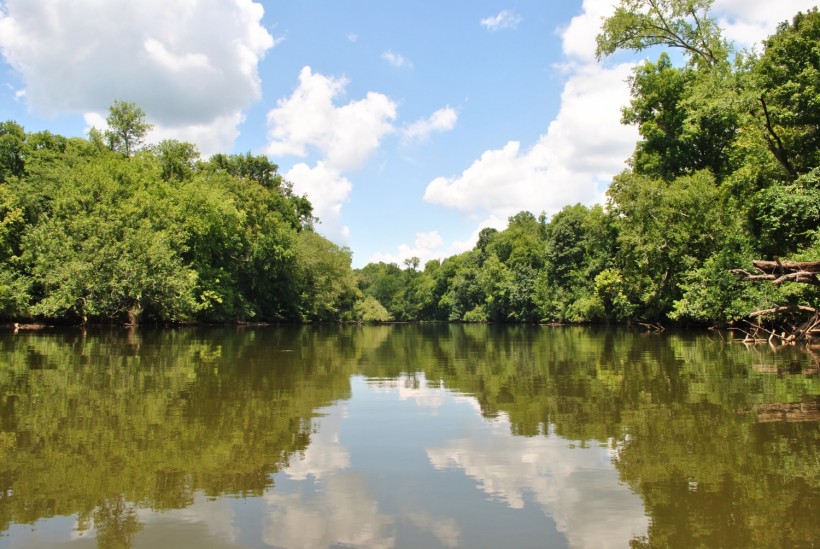Tom Kennedy, 50, of Wilmington, believes it is time to cease fighting cancer that began in his breast and has spread to his spine. Amy Nordberg, 43, of Wilmington, has already been stolen from her family by cancer. Nordberg died in January following a three-year fight with a deadly malignancy that developed after he was diagnosed with multiple sclerosis.

Kennedy and Nordberg are just two of the many sick and dying individuals who reside in North Carolina's Cape Fear River watershed. Environmental monitoring has revealed chronically high levels of several types of hazardous chemicals known as per- and polyfluoroalkyl substances or PFAS.
Using PFAS
Several enterprises in the area have used PFAS for many years. DuPont and its successor Chemours have been manufacturing the chemicals at a factory in Fayetteville, located along the river. PFAS are commonly used to produce hundreds of items resistant to water, heat, and stains.
Some of the most well-studied PFAS have been related to various human health issues, including cancer. Because they do not decompose and accumulate in the environment or human bodies, they are referred to as "forever chemicals."
Also Read: Water from the US May Have More "Forever Chemicals" than Previously Thought
PFAS Contamination

Despite more than two decades of warnings from public health experts, exposure to the toxins is nearly hard to avoid, particularly for residents of the Cape Fear River watershed.
The physical and mental pain that comes with living in a toxic-polluted location is ripping through families, damaging lives, and short-circuiting future hopes.
Making matters worse, while many individuals believe the health problems they or their friends and loved ones are the results of PFAS exposure, proving such concerns has been difficult. State and federal officials have resisted demands for in-depth research.
"The reaction is not commensurate to the harm done here," said Emily Donovan, executive director of the Clean Cape Fear advocacy organization, which was formed in response to the disaster in 2016.
Chemours has recognized the concerns about PFAS pollution and claims it has been working with people and regulators to remedy them for several years.
Still, there is evidence of pollution everywhere. Children construct sandcastles and splash in PFAS foam, a type of hazardous waste, on Oak Island beaches near the Cape Fear River empties into the Atlantic Ocean. When it rains, PFAS-laced frothy water bursts in Leland's gutters.
Contamination Everywhere
PFAS pollution has been found in drinking water, air and soil samples, crops, cattle, and fish, and, most significantly, blood samples from individuals who live and work in the region.
The basin is a valuable natural resource for drinking water, agriculture, and enjoyment. Experts warn that the 450,000 locals and additional 200,000 visitors who visit the region each year are in danger of being exposed to PFAS toxins.
According to a coalition of community and environmental justice groups that have demanded a comprehensive research program on 54 PFAS emitted by the Chemours plant, the region is a perfect "petri dish" for PFAS research - a chance to study how 40 years of exposure to a broad cross-section of PFAS affects the health of a large population.
The EPA denied the requests and stated that it would only investigate seven PFAS chemicals and seek to extrapolate their health implications and toxicity data over the class of over 9,000 PFAS compounds.
The organization filed a lawsuit against the EPA over the problem last month.
"We're upset - they offered us nothing," coalition attorney Bob Sussman remarked.
Even though the Biden administration started a multibillion-dollar endeavor last year to reduce PFAS usage and public exposure to the chemicals, the issues in Cape Fear linger.
Forever Chemicals
Because the chemicals do not degrade naturally, decreasing levels in drinking water around the facility and remediating the soil would take decades, according to Detlef Knappe, a PFAS researcher at North Carolina State University.
"People's lives have been flipped upside down because it's not just drinking water; it's likely food, fishing, swimming in lakes, property values: all of these things will remain the same for the foreseeable future," Knappe added. "It's a tragedy, a travesty, and, yeah, it's the outcome of Chemours effectively operating without regulation in terms of those substances for four decades."
Related Article: Contaminated Pearl Harbor Waters Makes Military Families Sick
For similar news, don't forget to follow Nature World News!
© 2024 NatureWorldNews.com All rights reserved. Do not reproduce without permission.



![Roundworms with Short Memories 'Stop Forgetting' When Frozen or Given Lithium [Study]](https://1471793142.rsc.cdn77.org/data/thumbs/full/70295/280/157/50/40/roundworms-with-short-memories-stop-forgetting-when-frozen-or-given-lithium-study.jpg)

